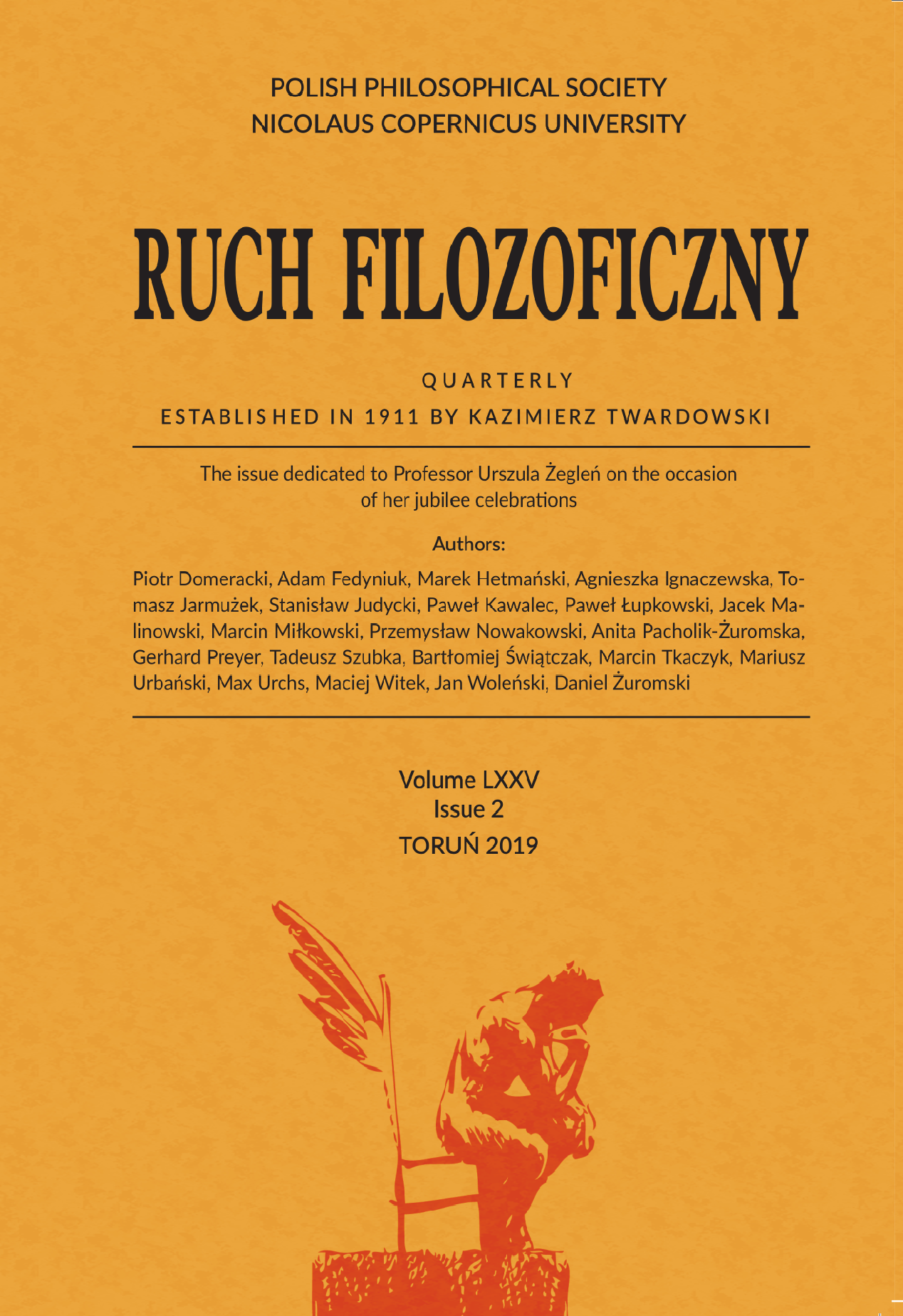Science and the Last Things
DOI:
https://doi.org/10.12775/RF.2019.018Keywords
science, the last things, universals, the nature of human mind, free will, the destiny of manAbstract
The author of the article aims at justifying the following theses: (1) never will scientific knowledge be able to solve the mystery of the world, including the mystery of such dimensions of exemplification of universals as time and space; (2) cosmic and biological evolution do not generate universals but follow in accordance with them; (3) the rationality we observe in the world can only be explained if we assume the existence of universals independent from human minds; (3) human immaterial soul is a power of configuring the physical and the organic activities of human body; (4) the existence of human free will points at the fact that human persons belong both, to the material world and to the ‘spiritual realm’ which is now inaccessible for us; (5) the aim of the creation of the world and creation of various kinds of persons (human and non-human) was to enable the emergence of intersubjectivity; (6) semantic communication between human persons is the first step towards the participation in the infinite creative power of God.
References
Aristotle. 1979. On the Generation of Animals, transl. P. Siwek. Warsaw: PWN.
Aune Bruce. 2002. “Universals and Predication”. In: “The Blackwell Guide to Metaphysics”. Oxford: Blackwell.
Crisp Oliver D. 2007. Divinity and Humanity. Cambridge: Cambridge University Press.
Hartmann Nikolai. 1935. Zur Grundlegung der Ontologie. Berlin–Leipzig: Walter de Gruyter.
Van Inwagen Peter. 1993. Metaphysics. Boulder: Westview Press.
Judycki Stanisław. 2017. „Monadologiczna metafizyka Edmunda Husserla” [Monadological metaphysics of Edmund Husserl]. In: Metafizyka, cz. I: Koncepcje metafizyki [Metaphysics, p. 1. The Conceptions of Metaphysics], ed. Stanisław Janeczek, Alina Starościc. 145–161. Lublin: Wydawnictwo KUL.
Scruton Roger. 2004. Death-Devoted Heart. Sex and the Sacred in Wagners’ Tristan und Isolde. 13–14. Oxford: Oxford University Press.
Downloads
Published
How to Cite
Issue
Section
Stats
Number of views and downloads: 1099
Number of citations: 0



